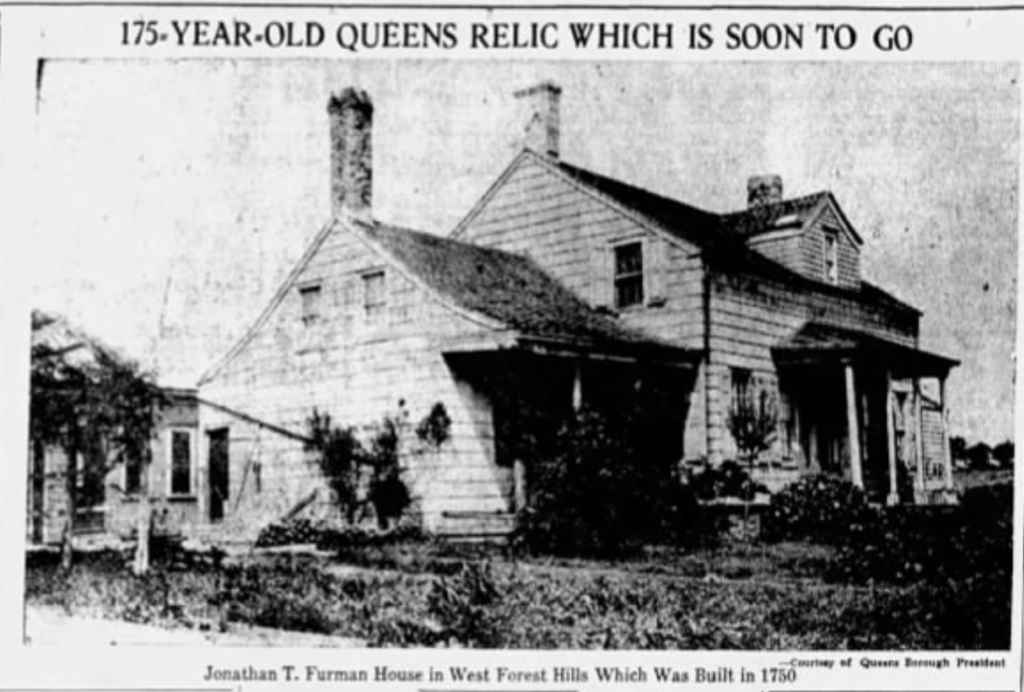Family Identified With First Schools of Queens, Also Active In Cause of Revolution.
One of the most charming types of early Dutch homes in old “Whitepot,” now West Forest Hills, is the Jonathan T. Furman house on Dry Harbor Road, erected in 1750. Although still standing and in an excellent state of preservation, the house will be razed sometime next month, it is reported.
The structure formerly faced a large pond, long since filled in, and was surrounded by great black walnut trees now nearly all destroyed.
Many of Family on L.I.
A number of Furmans, evidently brothers or close relatives of Judge Jonathan Furman, are mentioned in the early records of Queens County. The family, which exists in numbers on Long Island, are descendants of John Furman, a Welshman, who became a freeholder in Massachusetts in 1621 and later settled in “Whitepot” as this section of Queens was known in the early days.
Furmans are identified with the record of the first school in this section founded in 1729, according to Riker, Queens historian.
“The residents south of Newtown Village took measures in 1729 to build a schoolhouse a little west of “Whitepot” on a plot of ground 20 feet square, given by Jacob Springsteen, who on April 21 of the above year, executed a deed for the same to his ‘loving friends’ Joseph Furman, Newel Furman, Gabriel Furman, Daniel Stevenson, Benjamin Coe, David Springsteen, Ezekiel Furman, William Van Duyn, Jeromus Remsen, Jacob Skillman, Rem Remsen, Abraham Morrell, Joseph Furman, Edward Titus and Dow Sow Suydam who were all farmers residing thereabouts. A stone schoolhouse was first erected, which afterwards gave way to a wooden one and then a third one which burned down.” This school was located on Yellowstone Ave.
Exposed Cause of Resolution
Jonathan Furman is recorded as having been one of the voters who espoused the cause of the Revolution and undaunted by the clamors of the Tories of Queens stood steadfast with neighbors in passing resolutions to send delegates to the second session of the Continental Congress. This was on April 3, 1775, when a proclamation was issued to the Freeholders of Newtown calling attention to the fact:
“We are now called upon to oppose the encroachments which for some time past have been made upon our rights and liberty.”
This interesting appeal was addressed to the early voters of Queens for the sending of delegates to the convention to be held onboard April 20.
“Let us give generations yet unborn no cause to curse the transactions of this day,” reads the famous document that it is recorded Furman upheld.
The text of the appeal was addressed against the “tools of State who would by one single stroke, deprive us of our liberty and deprive us of our property.”


